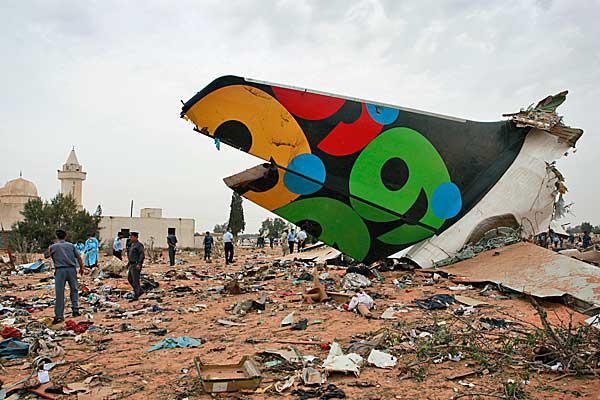
It was the day after the fourth anniversary of the Lockerbie bombing when a Libyan Arab Airlines Boeing 727 disintegrated on its approach to Tripoli airport.
Report by BBC
The crash, on December 22 1992, claimed the lives of all 157 passengers and crew. It was blamed on a mid-air collision with a Libyan MiG 23 fighter jet. The flight numbers were eerily similar.
The airliner destroyed in Libya was flight 1103. Pan AM flight 103 blew up over Lockerbie in southern Scotland in 1988, an attack for which Libya eventually took responsibility.
The two disasters are, officially, explained in very different ways.
Lockerbie is regarded as a state sponsored act of terrorism. The loss of flight 1103 was supposedly an accident.
Libyan media said international sanctions imposed on the country after Lockerbie were a contributing factor.
The MiG’s military pilot and his instructor, Majid Tayari, were sent to prison.
- Chamisa under fire over US$120K donation
- Mavhunga puts DeMbare into Chibuku quarterfinals
- Pension funds bet on Cabora Bassa oilfields
- Councils defy govt fire tender directive
Keep Reading
They were too afraid to tell their side of the story when Muammar Gaddafi was in power but that has changed following the Libyan revolution.
After 20 years of silence, Majid Tayari has spoken out to challenge the official version of events.
“There is no air collision,” he said. “We were too close to each other, yes. But there was no air collision.”
Tayari said he spent 42 months behind bars for a crime he did not commit.
The air safety manager with Libyan Arab Airlines in 1992, Mahmud Tekalli, is also sure a mid-air collision was not the cause.
He believes flight 1103 was deliberately destroyed.
“The airplane exploded in mid-air due to explosive devices, possibly put by Gaddafi agents,” he said.
Victims’ relatives also believe Gaddafi was responsible.
They are convinced he wanted the 727 to blow up over the Mediterranean so that he could accuse the US navy of a revenge attack for Lockerbie.
They think a bomb planted on board failed to detonate and that the Libyan leader had the plane shot down and covered up the evidence.
Fathi Haddad, a captain with Libyan Airlines, lost his brother and cousin in the disaster.
He is now part of a campaign for a fresh investigation. “We need to bring those responsible for this criminal act to justice,” he said.
Most of the victims aboard the Benghazi to Tripoli flight were Libyans.
Felicity Prazak is the widow of the only British victim. She was expecting her husband, Victor, who worked in the Libyan oil industry home for Christmas when news of the disaster broke.
“That just sent me into a panic really, into a spiral downhill from then on,” she said.
She never saw her husband again. All the victims were soon buried, the wreckage cleared, the case effectively closed.
Acting President Mohamed Magarief attended an event to mark the 20th anniversary of the disaster. In his speech, he described the destruction of flight 1103 as a “crime” and promised to seek “justice and compensation” for those who lost loved ones.











